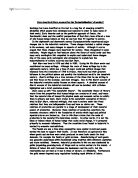The agents of political socialization are parents, school, peer group, media and government. Their influences vary temporally, affecting the way we choose to live at different points in our lives.
These agents dominate the value system at different stages of our lives. Beginning with parents, as the most influential in our pre-adult life. However, as the individual progresses through life they open themselves to other sources of influence.
This approach mirrors Ingelhart hypothesis on socialization. He believes that “to a large extent, ones value priorities reflect the conditions that prevailed during one’s pre-adult years” (Ingelhart). This seminal climate includes a combination of family’s state of affairs and the prevailing political and social environment that one is brought up in. Also the process of socialization is not without influences from religious teachings, peers and what social class they identify with.
The second strand of Ingelhart’s hypothesis is value change. He suggests that individuals are motivated by the opportunity to own something that is in scarce supply. That is when something is in short supply its value is enhanced making it more attractive to those who don’t have it. If the supply increases to satisfy the demand for the good then over time the object will come to be taken for granted, for e.g. up till recently everyone took petrol for granted. However, during the strike the quantity of petrol allowed per individual was limited to 15 liters. Following the strike drivers were much more eager to stock up, panic buying incase of a second strike. So according to Ingelhart our values correlate with our economic situation. The better the state of the economy the more likely we are to acknowledge post material issues.
Another approach pioneered by Maslow is the hierarchical order to individuals needs. Individuals first priority is to attain such items as food, shelter, water etc. When these needs are satisfied the individuals seeks to poses material goods to obtain a comfortable level of living. Only after these needs and wants are accomplished will the individual move on to “higher order goals”.
Ingelhart incorporated Maslow ideas to form a “hierarchy of political issues”. He believes that material goals, such as financial security, law and order and economic prosperity, receive much greater emphasis in times of social unrest or an economic depression. As a society moves towards addressing the unrest or recovering from the depression a shift takes place to other non-materialistic issues. These issues are “higher order goals” which reflect an individuals preference for quality rather than quantity, such as, their desire for freedom of speech, self expression etc.
Post Materialistic values
Social and self-actualization
needs (post-materialistic) Beautiful cities
Conserve nature
Free speech
Freedom of expression
More openness
Greater political participation
Job satisfaction
Physiological needs
(materialistic) Strong defense Forces
Fight crime
Maintain order
Stable economy
Economic growth
Job security
The diagram shows the hierarchical needs initially conceptualized by Maslow, here being used by Ingelhart to demonstrate the value Hierarchy: Source-Ingelhart
The most crucial raison d'être for post material values is the economy. Only the industrial advance countries have the sort of major political activity which has it roots in post material values.
The growth in post material values have had a profound impact on the society and the political climate. Post material values are a catalyst for many individuals to be more actively involved in the political process, which directly or indirectly effects them. Post materialist are therefore more likely to be involved in the process of decision making than others who are more materialist, also the former are more like to attempt to translate their interest into political movements.
The consequences of post materialism are evident even outside the political arena, for e.g. at the work place, employees have many more rights and greater say and influence in daily operations. Job satisfaction is now considered just as much important as any monetary rewards associated with the job itself. Individuals are also much more likely to be involved with strike action to support a colleague’s claims for better pay or improved working environment. However, this may not have been the case if the economy was facing a downturn.







